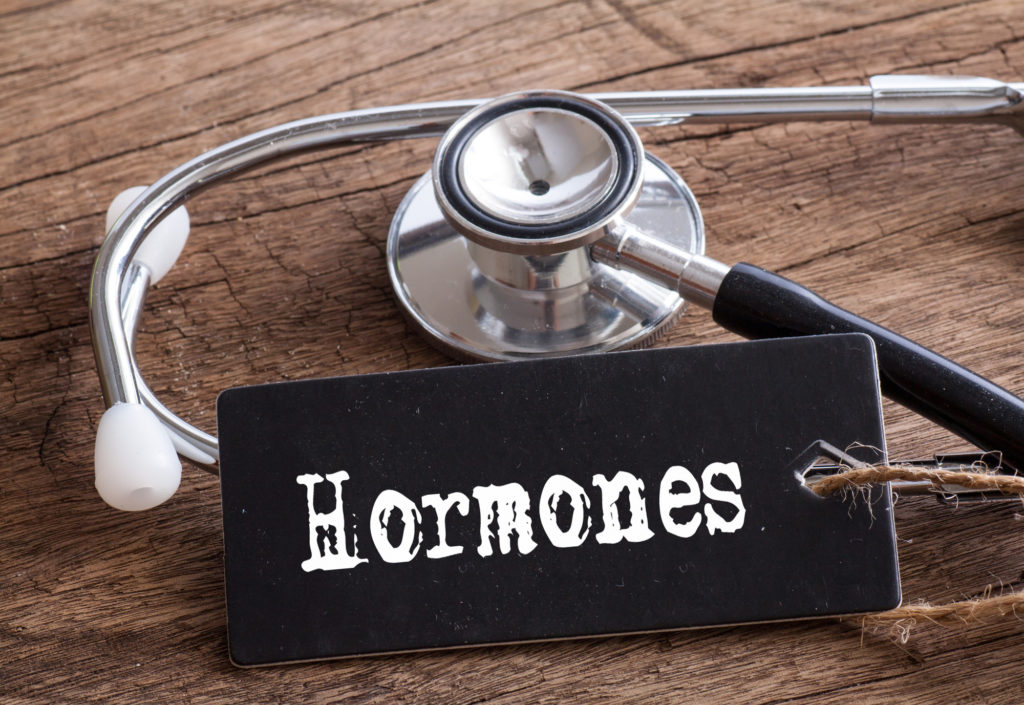
If you think you’re suffering from a hormonal imbalance, it’s important to know how to check your hormone levels to find the cause. Some of these ailments can be resolved fairly quickly in your own home.
We found some of the most common signs of hormone imbalance and ways you can fix them. Read on for more.
How to Check Your Hormone Levels
It’s normal for your hormones to change based on what’s happening in your life. Women experience hormonal changes when they become pregnant, their periods are on the way, and during menopause to name a few.
The most accurate way to determine if you’re suffering from a hormonal problem is to get tested in your doctor’s office. Testing can be administered via your blood, saliva, or urine.
While there are home tests available, there isn’t a method of testing that’ll provide more accuracy than one overseen by a medical professional.
Most patients experience positive hormonal shifts after making lifestyle changes. In more severe cases, hormone replacement therapy is required.
Signs Your Hormones are Out of Balance
When your hormone levels are too low or high, you can experience a ton of symptoms ranging from weight gain to exhaustion. This comprehensive list can help you narrow in on what’s going on with your body.
More importantly, it can help you find a resolution.
You can read more about hormone replacement therapy and ask your doctor how to check your hormone levels before deciding if it’s a good choice for your needs.
The Problem: You’re Exhausted and Riled Up
This rollercoaster of energy levels can make you feel like you’re losing your mind. If you find yourself feeling extremely energetic one minute and tired the next, cortisol (the stress hormone) is probably the reason.
People with chronically high levels of stress end up with abnormally high levels of cortisol in their brains. After your body has essentially crashed from all the up an down, you can find yourself feeling depressed and groggy.
The Fix: Lower Your Cortisol Levels
High cortisol levels can be remedied without medication. If you have this problem, you should:
- Exercise during the day, avoid caffeine at night, and use a few tricks for better sleep, like turning off electronics.
- Replace stressful and anxious thoughts with effective mindful thinking.
- Learn to relax. Try yoga, deep breathing, a creative hobby, and massage.
If you feel like you can’t end the cycle of stress on your own, consider speaking with a therapist or counselor. High cortisol levels are just the beginning of what stress can do to your body.
These symptoms can cause serious health problems like diabetes and heart disease over time.
The Problem: You’re Experiencing Digestive Irregularities
If everything was fine and you’re just starting to experience problems with your digestion, you might have a problem with your thyroid hormones.
If you’ve suddenly become constipated, your problem might be hypothyroidism. This is when you aren’t getting enough of the thyroid hormone. The lack of thyroid hormone can make your organs function too slowly.
Other signs of a low thyroid include depression, heavy menstrual flow, feeling cold all the time bad memory, and high cholesterol.
If you find yourself having bowel movements that are too frequent, this can be because of hyperthyroidism. Hyperthyroidism makes your organs operate too quickly.
Other signs of an overly active thyroid are dry skin, mood swings, hand tremors, rapid heartbeat, and anxiety.
The Fix: Regulate Your Thyroid
Dietary changes can help improve your thyroid health within a few months. Eat meals that are rich in cruciferous vegetables, coconut oil, fiber omega 3 fatty acids, and seeds.
Avoid high amounts of gluten, conventional dairy, and sugar.
The Problem: Your Gums Are Bleeding
If your gums are bleeding more often than usual, it can be an early sign of pregnancy. When you become pregnant, your body begins to produce significant amounts of progesterone. Progesterone keeps your body from possibly rejecting a new baby. It also increases your blood flow and makes you retain more water throughout your body.
Because of this water retention, your gums can become puffy and bleed when you’re brushing your teeth. However, if the bleeding continues after you’ve finished, talk to a doctor right away.
High amounts of progesterone also occur when you’re going through menopause or have ovarian cysts, congenital adrenal hyperplasia, or ovarian cancer.
The Fix: Estrogen
Consuming more estrogen will safely balance out your progesterone levels. However, if you think you have high progesterone, contact your doctor to be sure it isn’t a sign of a more serious illness.
The Problem: You Have Unexplainable Weight Gain or Loss
Problems with the thyroid or adrenal glands are common causes for changes in your weight. These hormones and others can impact the way our metabolism works.
The functions include the way calories are burned and stored as fat in our bodies. If you suspect the changes in your weight are hormonal, they can usually be resolved by adjusting your diet.
The Fix: Track Your Cravings
Keep a simple food journal to keep track of cravings, the food you eat, and your energy levels. If you notice, for example, that you’re hungry often and have low energy, you might need to increase the amount of protein you’re eating.
Continue to listen to your body and adjust your eating habits accordingly.
The Problem: You’re Losing Muscle Mass
Our bodies have several hormones that help muscle growth and recovery after workouts. This includes growth hormone, testosterone, insulin, and thyroid hormones.
When there’s a problem with any of the hormones that assist with muscle growth and maintenance, you can see a loss in strength and muscle mass. This is primarily due to the hormones interfering in your body digesting protein from the foods you eat.
The Fix: Fuel Your Body
You can get your muscle mass back naturally. Eat foods that are high in protein. Cut back on simple carbs and replace them with complex carbs.
Additionally, you should be incorporating strength training and light cardio into your exercise program. Give your body proper rest and recovery between workouts.
Follow Us
While many hormone imbalances clear themselves up with dietary changes and exercise, you should speak to your doctor about how to check your hormone levels and any inconsistencies with your body.
Follow our site for more interesting health articles that match your interests.

